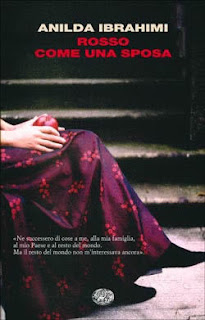Taha, Karosh "In the Belly of the Queen" (German: Im Bauch der Königin) - 2020
An interesting book, not easy to digest, but worth reading. The author is a German-born Kurd and she tells us about life as a foreigner in Germany but also as a Kurd in the international community.The unique thing about this book is that you can read it from two sides, no, you have to read it from two sides. Somewhere it is described as a "Wenderoman" which should be translated as a "changing/turning novel" but is really the German description for novels dealing with the political turning point after the fall of the Berlin Wall.
I decided to start at the top as the bookseller hands me the volumes and so I started with the part of Raffiq. We don't find out what part of Kurdistan he is from or if he is from Kurdistan at all but I assumed so. First and foremost, he talks about his friends Younes and Amal, teenagers like him who are about to graduate from school and are thinking about what they want to do afterwards. Raffiq also tells about their childhood and their everyday life, where Youne's mother Shahira plays a big role. She does not follow the general rules of the Kurds, and the young people's parents are not exactly enthusiastic about her.
The other half of the book is narrated by Amal. Her family comes from Iraq, her father left his wife many years ago and started a new family in his home country. Amal takes Shahira as an example and does not put up with everything that is not easy in her environment. Everyone finds it very shocking that she cuts her hair short.
You can see the book entirely as a story about growing up, the problems with parents who are larger because the parents grew up in a completely different culture. I hope my sons don't feel that way, our culture was more similar to that of our host countries.
A lot of the problems that the young people have are certainly exactly the same as those of other German and Western Europeans, and so some may learn from this that people are the same everywhere.
The way the story is told gives us two perspectives that make it seem like two totally different novels. That's what I found most fascinating.
From the back cover:
"Amal shocks the whole neighbourhood by beating up her classmate Younes. Her father defends her behaviour and encourages her to assert herself. From then on everyone avoids Amal - and then her father leaves. Searching in vain for an explanation, Amal finds unexpected refuge with Younes and his mother Shahira, both outsiders like her. Years later, when the situation comes to a head and the conflict with Raffiq’s gang escalates, Amal flees to Kurdistan to look for her father."
I found this through Karen @ kaggsysbookishramblings who in turn found it on Ali's page @ HEAVENALI.



























